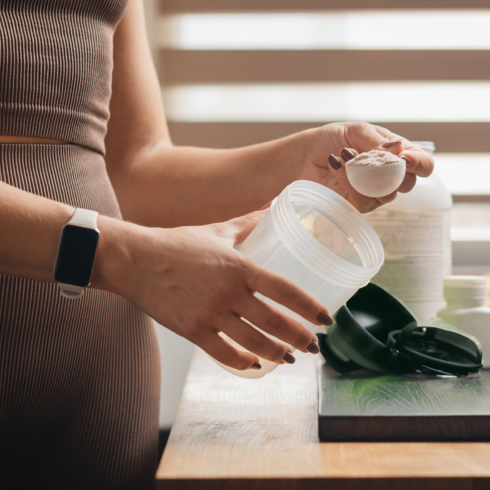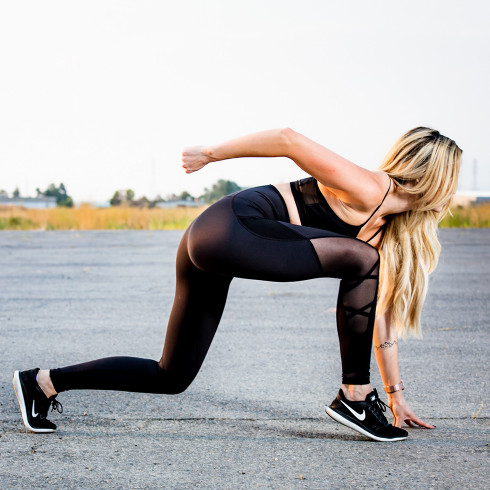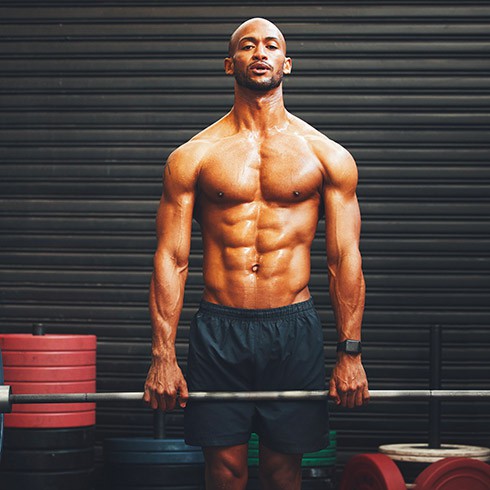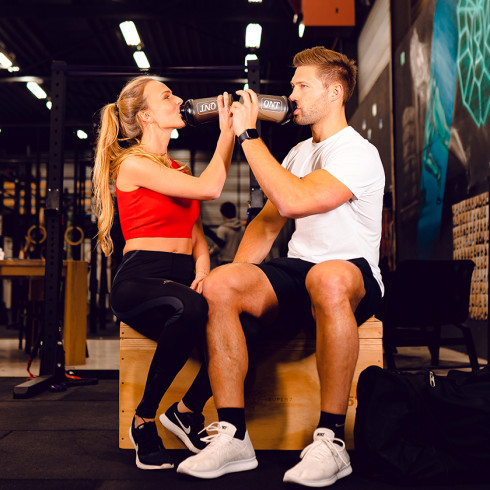Zinc and Health: Intake, Deficiency, Supplementation, Tips
TABLE OF CONTENTS
WHAT IS ZINC?
Zinc is an essential trace element, meaning a mineral present in very small amounts in the body, but crucial for its proper functioning. Although it represents only about 2 to 4 grams in the human body, it plays a role in numerous fundamental biological processes. It is mainly stored in the muscles, bones, skin, liver, and pancreas.
A key player in many vital functions.
Zinc plays an essential role in more than 300 enzymatic reactions. It is notably involved in:
- protein synthesis,
- cell growth and cell division,
- the metabolism of carbohydrates, fats, and proteins,
- the normal functioning of the immune system,
- wound healing,
- the protection of cells against oxidative stress.
Support for skin, hair, and nails.
Zinc is also well known for its benefits for skin, hair, and nail health. It helps with skin tissue regeneration and contributes to maintaining healthy skin. It is also a valuable ally against certain dermatological conditions such as acne or healing disorders.
An essential dietary intake.
The body cannot produce zinc, nor store it in significant amounts. It is therefore necessary to ensure a daily intake through diet. It is found in varying amounts in many foods, particularly meat, seafood, legumes, seeds, and nuts.
In summary, zinc is a key nutrient for maintaining a wide range of physiological functions. Particular attention should be paid to its intake, especially in people with increased needs or reduced absorption.
WHY IS ZINC IMPORTANT FOR THE BODY?
Zinc is one of the essential micronutrients for the proper functioning of the body. Its particularity lies in the fact that it is involved in a wide range of physiological processes, acting as a true regulator of cellular balance.
Present in every cell of the body, zinc is essential for growth, cell renewal, tissue repair, and the regulation of numerous enzymatic reactions. In addition, it supports the body’s natural defenses by playing a key role in the immune response. Without sufficient zinc intake, many vital functions would become imbalanced, compromising both overall health and recovery capacity.
WHAT ARE THE HEALTH BENEFITS OF ZINC?
Zinc provides beneficial effects on several aspects of health. On the immune level, it helps the body defend itself more effectively against infections. It is also well known for promoting good skin health: it supports wound healing and helps limit the appearance of imperfections.
This mineral also helps protect cells against oxidative damage, thus playing a protective role against accelerated aging. Its involvement in fertility, in both men and women, is well documented, as is its positive impact on the maintenance of cognitive functions.
Finally, an optimal zinc intake contributes to maintaining the quality of hair and nails, supporting their strength and vitality on a daily basis.
WHAT IS ZINC USED FOR?
Zinc is a versatile element that supports many bodily functions. It contributes in particular to:
- The synthesis of DNA and proteins,
- Energy metabolism,
- Cell division,
- The proper functioning of the immune system,
- The maintenance of healthy skin,
- The health of hair and nails,
- Fertility and reproduction.
Its role is also crucial in the protection of cells against free radicals. In other words, zinc helps the body function efficiently, defend itself against external aggressions, and preserve its integrity over time.
WHAT ARE THE SYMPTOMS OF ZINC DEFICIENCY?
A zinc deficiency can develop gradually and affect several functions of the body. Its signs are not always specific, which can make identification difficult without proper diagnosis.
Among the most common symptoms are an increased vulnerability to infections, linked to a weakened immune system. The skin and mucous membranes are often the first to reveal a zinc deficiency: the appearance of skin rashes, delayed wound healing, or fragile and brittle nails.
Other possible manifestations include diffuse hair loss, persistent fatigue, altered taste or smell, and in children, slowed growth. In adults, fertility issues may also occur.
It should be noted that these symptoms may also be related to other factors. In case of doubt, a medical check-up will confirm the cause of the problem and determine whether zinc supplementation is necessary.
WHAT ARE THE SIGNS OF ZINC EXCESS?
A zinc deficiency can develop gradually and affect several functions of the body. Its signs are not always specific, which can make identification difficult without proper diagnosis.
Among the most common symptoms are an increased vulnerability to infections, linked to a weakened immune system. The skin and mucous membranes are often the first to reveal a zinc deficiency: the appearance of skin rashes, delayed wound healing, or fragile and brittle nails.
Other possible manifestations include diffuse hair loss, persistent fatigue, altered taste or smell, and in children, slowed growth. In adults, fertility issues may also occur.
It should be noted that these symptoms may also be related to other factors. In case of doubt, a medical check-up will confirm the cause of the problem and determine whether zinc supplementation is necessary.
WHAT ARE THE DAILY ZINC REQUIREMENTS?
Zinc is an essential nutrient that the body cannot produce or store in large quantities, making an adequate daily intake indispensable to meet metabolic needs. Requirements vary according to age, sex, and certain physiological conditions such as pregnancy or breastfeeding.
Zinc needs differ depending on age, sex, and individual circumstances. Since the body cannot store this mineral in significant amounts, a regular intake through diet is essential.
Requirements are generally higher in certain populations: pregnant or breastfeeding women, adolescents in growth phases, athletes with increased metabolic demands, as well as older adults, in whom zinc absorption may decrease.
In addition, certain dietary factors influence the bioavailability of zinc. For example, phytates found in some whole grains and legumes can limit its absorption. Therefore, paying attention to the quality and diversity of zinc sources is key to effectively meeting daily requirements.
WHAT IS THE RECOMMENDED DAILY DOSE OF ZINC?
Health authorities provide guidelines to ensure optimal zinc intake. Here are the current general recommendations for the adult population:
- Adult men: around 11 mg per day
- Adult women: around 8 mg per day
- Pregnant women: around 11 to 12 mg per day
- Breastfeeding women: around 12 mg per day
For children, the recommended intake varies depending on age and growth needs.
It is important to remember that these values are based on a balanced diet. In cases of supplementation, it is advised not to exceed the recommended doses without medical advice, in order to avoid the risks associated with excessive zinc intake.
FOOD SOURCES
Zinc is found in many foods, but its concentration and bioavailability vary considerably depending on the source.
WHICH FOODS CONTAIN ZINC?
Zinc is present in a wide range of foods, both animal and plant-based. Red meat, poultry, and seafood (especially oysters, which are extremely rich in zinc) are particularly concentrated and well-absorbed sources.
Among plant-based sources, we find legumes such as chickpeas and lentils, pumpkin or sesame seeds, nuts, and whole grains. However, these foods generally contain smaller amounts of zinc compared to animal products.
WHICH FOODS ARE HIGHEST IN ZINC?
- Oysters, true zinc powerhouses;
- Organ meats (especially veal liver);
- Red meats (beef, lamb);
- Fish and seafood in general.
On the plant side, pumpkin seeds, cashews, lentils, and tofu are among the best options.
IS ZINC FROM PLANTS WELL ABSORBED?
Plant-based zinc has lower bioavailability compared to zinc from animal sources. This is due to the presence of compounds called phytates, which reduce the absorption of this mineral in the intestines.
However, certain food preparation techniques—such as soaking, sprouting, or fermentation—can reduce phytate content and improve the bioavailability of plant-based zinc.
DO VEGETARIAN DIETS MEET ZINC NEEDS?
A well-planned vegetarian diet can indeed meet zinc requirements, provided careful attention is given to the selection and preparation of foods. It is recommended to diversify plant-based zinc sources, limit absorption inhibitors, and, if necessary, consider nutritional monitoring to avoid deficiencies—especially in at-risk populations such as children and pregnant women.
ZINC AND SPECIFIC HEALTH
Zinc has targeted effects on several key aspects of health. Its role goes beyond that of a simple trace element, actively contributing to the protection, repair, and maintenance of the body’s vital functions.
DOES ZINC BOOST THE IMMUNE SYSTEM?
Zinc plays a fundamental role in maintaining an effective immune system. It contributes to the maturation and activation of immune cells, thereby supporting a strong response against pathogens. Adequate intake helps strengthen natural defenses, while a deficiency can increase the risk of infections.
DOES ZINC HELP THE BODY RESIST INFECTIONS?
Thanks to its key role in immunity, zinc helps the body better defend itself against bacterial and viral infections. It supports the activity of immune cells and promotes the repair of tissues damaged by infections.
IS ZINC EFFECTIVE AGAINST THE COMMON COLD?
The role of zinc in managing colds has been widely studied. Some research suggests that early supplementation may help reduce the severity and shorten the duration of symptoms. However, results remain variable depending on the study and the form of zinc used.
DOES ZINC HAVE POSITIVE EFFECTS ON THE SKIN, PARTICULARLY FOR ACNE AND HEALING?
Zinc is a key factor in maintaining healthy skin. It promotes wound healing, regulates sebum production, and has anti-inflammatory properties. These actions make it a recognized ally in managing acne and skin conditions in general.
DOES ZINC HAVE AN IMPACT ON HAIR?
Adequate zinc intake contributes to maintaining healthy hair. This mineral supports hair growth and helps prevent hair loss linked to nutritional deficiencies. It also plays a role in maintaining the quality and strength of hair fibers.
DOES ZINC PLAY A ROLE IN FERTILITY?
Zinc plays an essential role in fertility for both men and women. In men, it contributes to testosterone production and the maintenance of sperm quality. In women, it supports healthy hormonal cycles and ovarian function.
DOES ZINC HELP WITH FATIGUE?
Although zinc is not a direct energy booster, it contributes to normal energy metabolism and helps reduce fatigue linked to certain deficiencies. A zinc deficiency can disrupt various physiological functions, leading to chronic tiredness.
SUPPLEMENTATION
Although sufficient dietary intake of zinc is ideal, certain situations may justify the use of supplementation. However, it must be carefully managed to optimize benefits and avoid risks linked to excess intake.
IS TAKING ZINC SUPPLEMENTS NECESSARY?
Zinc supplementation is not systematic. It is usually considered in cases of proven deficiency, increased needs, or when diet alone does not cover the recommended intake. Before starting supplementation, it is advisable to check zinc status with a healthcare professional.
WHO NEEDS ZINC SUPPLEMENTS?
Certain groups are more likely to benefit from supplementation:
- people with digestive disorders that impair nutrient absorption;
- vegetarians and vegans, whose diets are lower in bioavailable zinc;
- pregnant or breastfeeding women;
- seniors, whose intestinal absorption decreases with age;
- athletes engaged in intensive activity, due to significant losses through sweat.
WHICH TYPE OF ZINC SUPPLEMENT SHOULD YOU CHOOSE?
The zinc supplement market offers several forms, including gluconate, picolinate, citrate, bisglycinate, and zinc oxide. These forms differ in their zinc content and bioavailability. Organic forms of zinc (picolinate, citrate, bisglycinate) are generally better absorbed than inorganic forms.
WHICH FORM IS BEST ABSORBED?
Zinc picolinate and zinc bisglycinate are among the best absorbed forms, with good digestive tolerance. Zinc citrate is also an interesting option. In contrast, zinc oxide, although commonly used, has lower absorption.
WHEN SHOULD YOU TAKE ZINC: MORNING OR EVENING?
Zinc can be taken either in the morning or in the evening. However, to optimize absorption, it is best taken away from meals rich in fiber, iron, or calcium, which can reduce its assimilation. Taking zinc on an empty stomach or with a light meal often helps minimize interactions.
CAN ZINC BE TAKEN CONTINUOUSLY?
Zinc supplementation should respect recommended doses and not be prolonged without monitoring. A short course (a few weeks to a few months) is generally sufficient to correct a deficiency. Excessive zinc intake over time, without medical supervision, may disrupt mineral balance, particularly by lowering copper levels.
WHAT ARE THE INTERACTIONS BETWEEN ZINC AND OTHER MINERALS?
Zinc interacts with several minerals. Excess zinc can reduce copper absorption, leading to copper deficiency. It can also reduce the absorption of iron and calcium when taken together in high doses. It is therefore recommended to space out their intake to promote better absorption of each mineral.
SPECIFIC POPULATIONS
Certain population groups have increased zinc requirements or a higher risk of deficiency. Adjusting intake according to these specific needs helps maintain nutritional balance and support the body’s vital functions.
DO ZINC NEEDS INCREASE DURING PREGNANCY?
Yes, during pregnancy, zinc requirements increase significantly, as the body uses more of this mineral to support fetal growth, maternal tissue development, and preparation for breastfeeding.
Recommended intake for pregnant women generally ranges between 10 and 12 mg per day. A zinc deficiency during this period can negatively impact the course of pregnancy as well as the child’s future health (growth, immunity, cognitive development).
It is therefore important for pregnant women to ensure sufficient zinc intake, either through diet or targeted supplementation, if deemed necessary by a healthcare professional.
DO ATHLETES HAVE HIGHER ZINC NEEDS?
Athletes, particularly those engaged in intense and regular physical activity, may have increased zinc needs. Part of the zinc is lost through sweat during exercise. Zinc also plays a role in tissue repair, protein synthesis, and the proper functioning of the immune system—all essential processes stressed by training. Paying special attention to zinc intake is therefore recommended to optimize recovery and maintain performance.
SHOULD SENIORS SUPPLEMENT WITH ZINC?
With age, zinc absorption tends to decrease, while the body’s needs remain important, particularly for maintaining immunity and protecting against oxidative stress. Seniors may also have insufficient dietary intake due to changes in appetite or eating habits. Zinc supplementation, when properly adapted and supervised, can therefore be beneficial in helping maintain vitality and overall well-being in older adults.
PRECAUTIONS AND SIDE EFFECTS
While zinc is an essential nutrient for the proper functioning of the body, supplementation must be carefully managed. An intake that is too high or poorly adjusted can cause imbalances and side effects. It is therefore crucial to follow a thoughtful and well-informed approach.
WHAT ARE THE RISKS OF EXCESSIVE ZINC SUPPLEMENTATION?
Too high or poorly adjusted intake can cause imbalances and side effects. One of the major risks is the induction of a copper deficiency, as excess zinc reduces the absorption of this mineral. Other mineral imbalances may also occur, affecting various physiological functions.
WHAT SIDE EFFECTS CAN RESULT FROM ZINC SUPPLEMENTATION?
The side effects of excess zinc most often manifest as digestive disorders: nausea, abdominal pain, diarrhea, or even vomiting. At very high doses, or in cases of prolonged supplementation, zinc can also cause unusual fatigue, headaches, a persistent metallic taste in the mouth, and impaired immune function. Respecting the recommended doses is essential to avoid these inconveniences.
CAN ZINC BE COMBINED WITH OTHER VITAMINS OR MINERALS?
Zinc can absolutely be combined with other nutrients, provided that dosages and timing of intake are respected. It is often combined with B vitamins, vitamin C, or vitamin E to support immunity and cellular protection. However, caution should be taken with minerals such as copper, iron, and calcium, which may interfere with its absorption when consumed simultaneously in large quantities.
DOES ZINC INTERACT WITH MEDICATIONS?
Yes, zinc can interact with certain medications. For example, it can reduce the absorption of some antibiotics (notably tetracyclines and quinolones) as well as some treatments for osteoporosis (bisphosphonates). Conversely, some medications, such as thiazide diuretics, can increase urinary elimination of zinc and thus raise requirements. It is therefore recommended to seek advice from a healthcare professional in case of concomitant medication treatment.
COACH'S TIPS

If you are an intensive athlete, zinc is essential to support your immune system and speed up muscle recovery after training. Due to increased losses through sweat, a sufficient intake is crucial. If your diet does not cover your zinc needs, consider moderate supplementation. Take it preferably after training, spacing it out from other minerals such as calcium or iron, which can interfere with its absorption. For better effectiveness, choose forms of zinc that are easily absorbed, such as picolinate or bisglycinate, and avoid excesses to prevent disrupting the balance of other minerals.
Related posts
-
 Summer holidays: How to limit the damage?
Posted in: Our tips24/06/2021On holiday, we often tend to let ourselves go. Unless you're a hardcore sportsman, you tend to abandon your trainers...Read more
Summer holidays: How to limit the damage?
Posted in: Our tips24/06/2021On holiday, we often tend to let ourselves go. Unless you're a hardcore sportsman, you tend to abandon your trainers...Read more -
 Which fat burner to choose?
Posted in: Our tips26/05/2021To lose weight and burn fat, there is no secret: you have to do sport and take care of your diet. However, it is...Read more
Which fat burner to choose?
Posted in: Our tips26/05/2021To lose weight and burn fat, there is no secret: you have to do sport and take care of your diet. However, it is...Read more -
 Summer body edition for men: How to prepare your body?
Posted in: Our tips11/05/2021Gentlemen ? The return of the sun and its warm rays are almost here! The degrees are slowly but surely rising, but...Read more
Summer body edition for men: How to prepare your body?
Posted in: Our tips11/05/2021Gentlemen ? The return of the sun and its warm rays are almost here! The degrees are slowly but surely rising, but...Read more -
 9 good reasons to do sport.
Posted in: Our tips22/04/2021Sometimes the urge to exercise is not always there. And although we always tell ourselves that this year will finally...Read more
9 good reasons to do sport.
Posted in: Our tips22/04/2021Sometimes the urge to exercise is not always there. And although we always tell ourselves that this year will finally...Read more -
 Discover how to take care of your faithful companion: your shaker!
Posted in: Our tips07/04/2021In your bag, in your hand, in your sink, it is everywhere! The shaker is an essential element of any good training....Read more
Discover how to take care of your faithful companion: your shaker!
Posted in: Our tips07/04/2021In your bag, in your hand, in your sink, it is everywhere! The shaker is an essential element of any good training....Read more
Blog categories
Popular posts
-
 10 Expert Tips to Maximize the Effectiveness of Creatine26/08/2024Posted in: Our tipsThis article presents ten tips to maximize the effectiveness of creatine. It emphasizes the importance of choosing...Read more
10 Expert Tips to Maximize the Effectiveness of Creatine26/08/2024Posted in: Our tipsThis article presents ten tips to maximize the effectiveness of creatine. It emphasizes the importance of choosing...Read more -
 Looking thinner but at a heavier weight? Is that possible?04/10/2021Posted in: Our tipsAdvertising has shaped our thinking! We have been forced for years to believe that losing weight is the key to having...Read more
Looking thinner but at a heavier weight? Is that possible?04/10/2021Posted in: Our tipsAdvertising has shaped our thinking! We have been forced for years to believe that losing weight is the key to having...Read more -
 10 BENEFITS OF GLUTAMINE.02/01/2024Posted in: Our tipsDiscover the power of L-glutamine, an underrated superhero in the world of amino acids! Essential for revitalizing...Read more
10 BENEFITS OF GLUTAMINE.02/01/2024Posted in: Our tipsDiscover the power of L-glutamine, an underrated superhero in the world of amino acids! Essential for revitalizing...Read more -
 Proteins for weight loss !29/12/2023Posted in: Our tipsDive into the fascinating world of proteins and their key role in weight loss. Discover how to choose the best...Read more
Proteins for weight loss !29/12/2023Posted in: Our tipsDive into the fascinating world of proteins and their key role in weight loss. Discover how to choose the best...Read more -
 L-carnitine and weight loss.15/10/2024Posted in: Our tipsDiscover how carnitine works on weight loss, even without exercise. This article reveals whether this supplement can...Read more
L-carnitine and weight loss.15/10/2024Posted in: Our tipsDiscover how carnitine works on weight loss, even without exercise. This article reveals whether this supplement can...Read more

.jpg)

